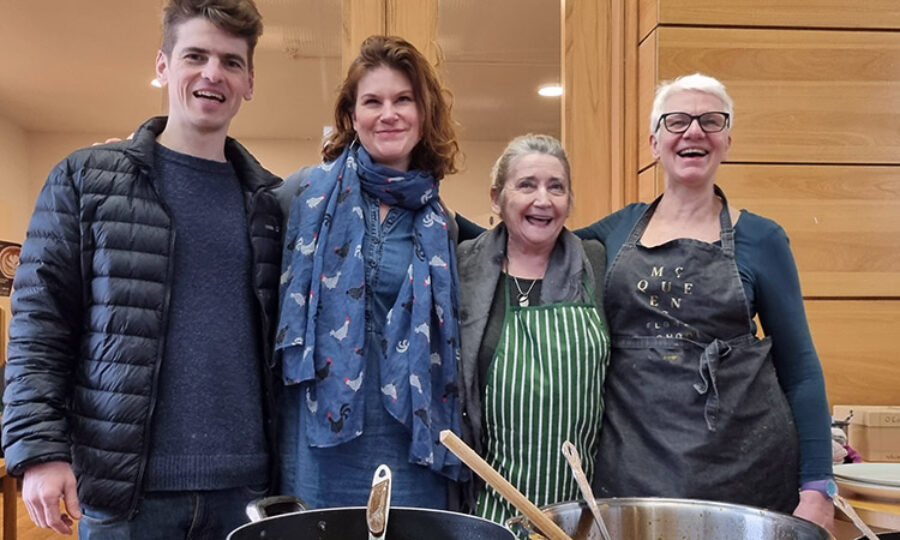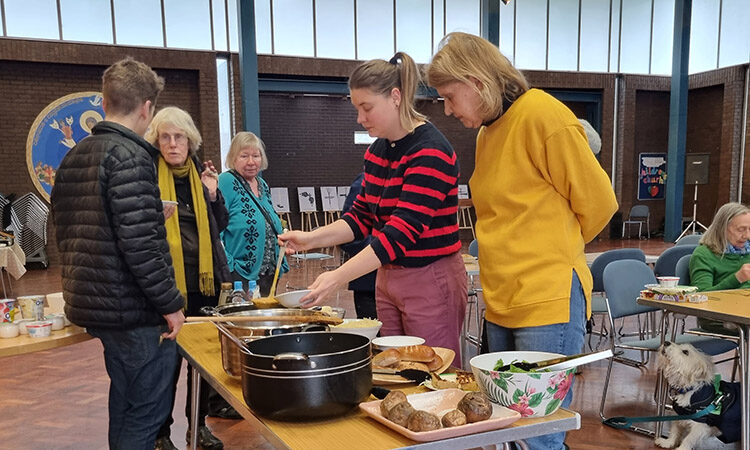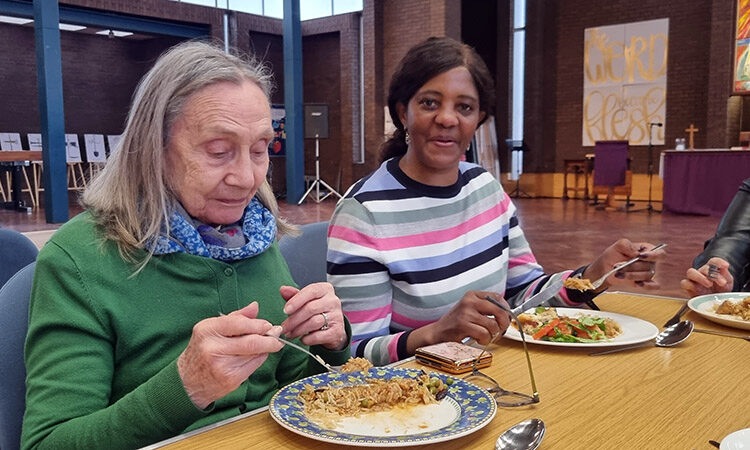Waste watchers

We visit the Wellbeing Cafe to find out how they’re turning surplus into meals for locals
Have you ever walked past a shelf in the fruit section of your local supermarket that’s heaving with bananas? Ripe bananas that have reached that sweet spot, where texture and taste is at its best. In another 12 hours, their flesh will become chalky, their skins leathery. What happens to them?
The same goes for the shelves of yoghurt tubs you rifle through to find the one at the back with a few days extra shelf life. Or the ready meals, condemned by a stamp of magical numbers stating that indeed, today is the last day of their rightful existence as a food product that will (supposedly) not cause severe food poisoning.
What happens to all this food? Many of us like to imagine it’s all snapped up by a late stampede of hungry and desperate 7–10pm shoppers, before it gets to the stage where it’s no longer fit to eat. The truth, sadly, is that this perfectly edible food is now relabelled as ‘waste’, placed in industrial plastic bags and dumped in an alley outside the store, for collection by already overstretched bin collection services across the country.

This dilemma of an overabundance of supermarket food waste is something that intrigued Islington resident Nic Whitworth. After some enquiries at her local Budgens and Co-op stores, she discovered this ‘waste’ can be collected, with the stores’ blessing, and redistributed for free within the local community.
As a result, Nic started an experimental food surplus store from outside her home. She soon realised there was a strong appetite for free food just past its best before date, but still perfectly safe to eat.
Her initiative led her to cross paths with similar work being done at St George’s Tufnell Park. The church was already running Tuesday night drop-ins and Wednesday morning breakfasts, where locals are welcomed to enjoy a free meal in the warm company of Rev Alexandra Lilley, her colleagues, and fellow residents. This laid the roots for their Wellbeing Cafe.
From the overflow of extra food, they realised they had enough to expand the cafe’s output to another community meal. However, running a project like this requires long hours of hard work and extra manpower to not only cook the meals, but pick up and store them.

Alexandra got in touch with Islington Council to organise funding through the Local Initiatives Fund (LIF) cost of living crisis grant. This funding has provided a freezer to store extra food, as well as the means to pay Nic a day’s salary per week for her herculean efforts.
Now, the Wellbeing Cafe at St George’s serves locals a free three-course lunch every Wednesday for residents of all backgrounds, including the elderly and widowed, victims of domestic abuse, and refugees from the war in Ukraine. There’s also just friendly locals who’d like to have a chat and make new friends.
“We’re bridging the gap between food that would otherwise be thrown away and people in need – it’s an obvious thing to do!” says Alexandra.
“But it’s not an ideal situation. Farming and food needs to be valued more by our society and food waste treated much more seriously” – and poverty needs to be addressed at the root if we’re to really address people’s inability to access food and end hunger. “It’s also important to note that this is just not about the food,” she continues. “It’s about bringing people together and providing an important space where loneliness and isolation can be overcome with warm and friendly human contact.”
